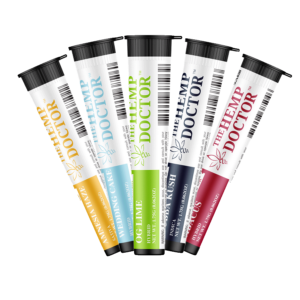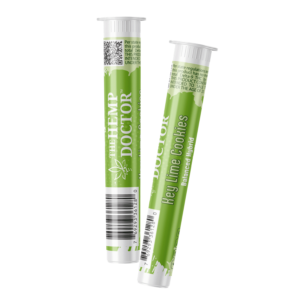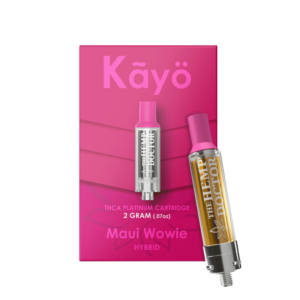Taxation and accounting are a serious concern for any retail store. If you plan to open a store selling hemp products, you may be worried that you’ll have to jump through many hoops.
Fortunately, that is most likely not the case.
Now that hemp and hemp-derived products are federally legal, retailers carrying these products are no longer subject to the provisions of IRS Code 208E. That’s a huge advantage for hemp, CBD, and Delta 8 businesses. You don’t have to navigate the complex and sometimes contradictory tax issues that even legal cannabis businesses and medical marijuana dispensaries do.
Below, you’ll learn more about recent changes in taxation for hemp businesses, what requirements you do need to follow, and answers to common questions about your tax situation.
What Is IRS Tax Code Section 208E, and Why Does It No Longer Apply to CBD and Delta 8 Businesses?
IRS Code 208E is a part of the Internal Revenue Code that deals with expenditures concerning the illegal sale of drugs. Basically, it says that even if you sell illegal products, you have to report them on your taxes. Furthermore, there can be NO tax deductions or credits on the amount.
Cannabis businesses, such as dispensaries, must be in full compliance with this law. They have to report their income as “illegal” even though they are allowed to operate in their states. They must pay the full balance owed without deducting any expenses.
Cannabinoid/Hemp businesses, on the other hand, do not have to do any of this. Cannabis accounting is now completely separate from cannabinoid accounting.
Hemp and its derivatives were federally legalized when Congress passed the Farm Bill of 2018, and the President signed it into law.
As a result of this legalization, compliant hemp, CBD, Delta-8, and other cannabinoids can be taxed and accounted for like most other retail businesses! You are not in a gray area of federal law when selling hemp.
Section 280E no longer applies unless you want to carry controlled substances or legal substances like hemp.
What Federal Taxes and Accounting Requirements Cover CBD Businesses?
The specific IRS rules that apply to a hemp business will depend on a number of factors that are difficult to determine without the assistance of an accountant. Federal law isn’t just concerned with what you’re selling but also with how you’re selling it and tracking it.
Hemp retailers are responsible for collecting and reporting all the data that the IRS requests at the federal level every year, and large fines can be applied if those figures are misrepresented or reported late.
You will be responsible for reporting a large range of data about your
- Product Inventory Totals
- Cost of Goods Sold
- Sales
- Payroll
- Land/Facility Use
- Asset/Loan Information
- More
This can be a big burden for any kind of business. Fortunately, there are some good places to get advice if you need help.
What Is The Best Way To Understand My Tax and Accounting Needs?
The best way to understand your tax and accounting needs is to work with professionals who can help you figure out all of the confusing details. In the course of setting up your business, you may need to do all of the following—
Speak to a Lawyer
Speaking to a lawyer when forming any business is always a good idea. Lawyers can fully brief you on tax law and reporting obligations, including those that apply only to your state.
Speak to an Accountant/CPA
Business accountants professionally handle all the tax obligations that will likely affect you while selling hemp products. They can help you handle tax planning before your business opens and guide you through any new tax rules that follow new state laws.
In addition to handling duties like bookkeeping, drafting financial statements, filing taxes, and making tax payments, accountants can help you set up necessary software. They can help you set up tracking systems to automate record-keeping.
Talk to a Cannabinoid Trade Organization
Look for cannabinoid trade organizations in your area that offer advice and resources to new entrepreneurs in the industry. Organizations like the U.S. Hemp Roundtable may be able to connect you to the help you need.
FAQs About Taxes and Accounting for Cannabinoids
More questions? You may find what you’re looking for in this series of common FAQs for selling CBD, Delta-8, and other cannabinoids.
What is the tax on CBD?
The overwhelming majority of states have not passed special taxes on CBD. You will need to confirm your state’s typical sales tax rates to determine what you need to collect.
Are CBD gummies taxed?
CBD gummies typically do not have special taxes that don’t apply to other CBD products. In most states, all CBD products will follow the state tax rate.
Can you write off CBD?
Cannabinoid businesses, as legal businesses selling legal products, are eligible for most kinds of deductions and tax credits that apply to the course of doing business (standard business expenses). As an example, you may be able to write off unsold CBD products, spoiled products, or other kinds of losses.
Is CBD subject to the cannabis excise tax?
A few states, such as Louisiana, have an extra 3% excise tax you must collect on CBD. You can find a complete list of special cannabis and cannabinoid taxes here.
Ready To Start a Cannabinoid Business? We Can Provide The Product
There’s never been a more exciting time to enter the hemp business. Now that you don’t have to worry about the burdens placed on the cannabis industry, you can buy, sell, and bank like most other business owners in your state. Tax compliance is relatively simple. Of course, you’ll need products to sell first. That’s where THDWholesale can help. We carry a complete selection of fine hemp products to fill your small business shelves. Our lab-tested products from premium growers are sure to be a hit. Contact us about ordering our products at competitive wholesale prices.








